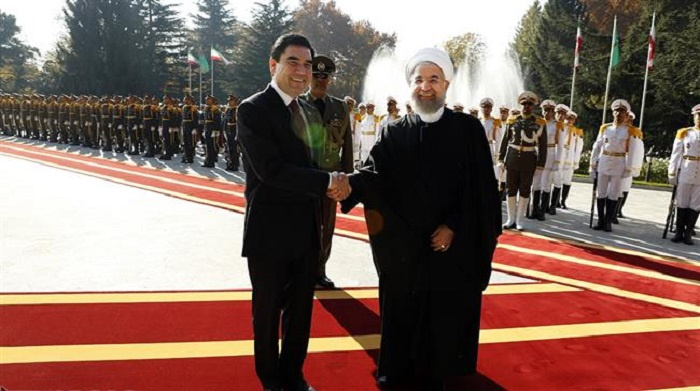Post-JCPOA Energy Diplomacy: Gas Unity with Turkmenistan

Under conditions when severe and unfair sanctions were imposed on our country, particularly in the very negative international atmosphere which was created due to these sanctions and the inappropriate foreign policy approach of the previous administration, many of the international attempts to expand trade, economic and political relations and bilateral and multilateral cooperation between Iran and other countries seemed impossible. Prolongation of that period caused self-censorship in presenting ideas and proposals towards the expansion of relations and disappointment in pursuing an active diplomacy in the path of achieving those goals. Today, due to the measures taken by the government and the Foreign Ministry, those conditions have changed and not only has the plot of Iranophobia been neutralized and Iran’s negative image removed, but Iran has also been transformed into an active and effective player in resolving international and regional challenges as well. Under such conditions, energy diplomacy must also be pursued in another manner. Among the areas which must be reviewed and be seriously active in this regard is gas relations between Iran and Turkmenistan. These relations could be either viewed with negative competition or positive competition and even cooperation.
Under the dark period of Iran’s foreign policy, which has been mentioned above, many measures taken by Turkmenistan could be viewed as negative competition supported by the world powers. But due to the present conditions, cooperation between the two countries could create positive synergy against other rivals and even gain the support of influential western countries.
A complete report must be published about the gas policies and plans of Turkmenistan. Iran ranks first and Turkmenistan fourth in the gas reserves of the world and together these two countries hold 27.5% of the world’s gas reserves.
Relations between Iran and Turkmenistan are good and twenty years have passed since a gas contract was signed between the two countries and Iran has been importing gas from Turkmenistan since 18 years ago. Iran has signed gas export contracts with Pakistan and has been negotiating with India since many years ago. Iran also has good relations and cooperation with Afghanistan in all areas including energy; this is while there is a contract between four countries, Turkmenistan, Afghanistan, Pakistan and India, for the construction of a pipeline called TAPI through which gas is exported from Turkmenistan to the three other countries.
Now in the new international atmosphere, Iran could also ask to join TAPI and begin negotiations with all these four countries, particularly Turkmenistan. Joining the gas pipelines of these five countries could raise the maneuver power of transfer operations of gas and promote the security level of providing gas for the three importing countries and, at the same time, strengthen the level of multilateral cooperation and political relations of all these five countries. This cooperation could, in the long run, prepare the ground for a gas loop in all of Asia to cover other countries especially China. Turkmenistan already exports gas to China.
The Oil Ministry and Foreign Ministry of Iran must join hands to join TAPI and the least benefit from this would be to gain detailed information of the progress made in this regard and establish new opportunities to expand interactions with these four countries.
Since long ago, the European Union has made attempts to expand its gas resources and it has always considered the gas reserves of Iran and Turkmenistan. On the other hand, Iran’s route is one of the best routes of transfer and is even the gas swap of Turkmenistan’s gas to Europe. Turkmenistan is landlocked and does not have any access to free waters and the issue of the Trans Caspian pipeline which has been proposed to use the Caspian Sea to transfer gas from this country to the Republic of Azerbaijan and then Turkey and ultimately Europe is faced with numerous problems including the unclear legal regime of the Caspian Sea and threats against the environmental issues of this sea. The gas exports of the two countries to Europe are faced with numerous obstacles which could be facilitated by the cooperation of Iran and Turkmenistan and their joint negotiations with Europe.
If Turkmenistan is interested in entering LNG trade, it does not have any better solution than Iran. There are certain proposals for joint liquidification projects between Iran and Turkmenistan based on which Turkmenistan could deliver its gas in the north to Iran’s pipeline network and deliver LNG in the south.
As mentioned, the grounds of cooperation are so vast that a strategic unity in the areas of gas cooperation between the two countries could be proposed.

